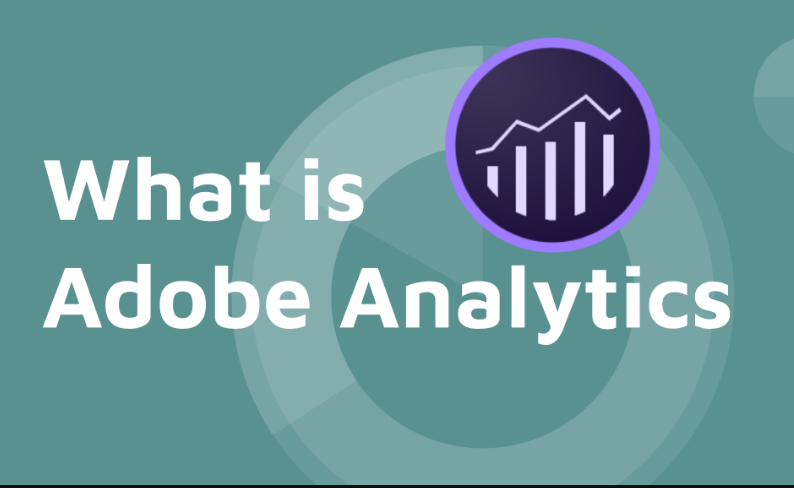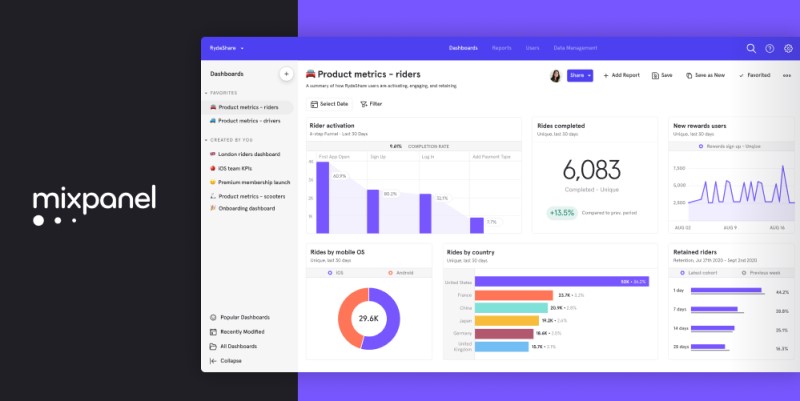Insightful data is the key to deeply understanding your audience and making informed business decisions. That’s why you need to have a solid grasp of the Analytics Tools for Digital Content to provide accurate insights to optimize your marketing efforts. However, choosing the right technical analysis tool can be challenging and choosing the wrong tool can be a costly mistake. That’s why we‘ve put together this article to make it easier for you to choose the right analytics platform.
Introduction to analytics tools for digital content
Analytics tools for digital content refer to software and services that help track and analyze how users interact with online content, such as websites, mobile apps, social media, and video platforms. These tools provide insights into user behavior, preferences, and engagement, which can help businesses optimize their digital content and marketing strategies to improve performance and achieve business objectives.
Analytics tools for digital content typically provide a range of features, such as tracking user behavior and interactions, analyzing user demographics and preferences, measuring content performance and engagement, identifying trends and patterns, and providing visual reports and dashboards for easy interpretation of data. Some popular analytics tools for digital content include Google Analytics, Adobe Analytics, Mixpanel, Piwik PRO, and IBM Watson Analytics.
Why use analytics tools for content?
Now that you understand the basics of analytics tools for content, the question is, why should we use these tools? Content analytics tools can help businesses understand how users interact with their digital content, such as how long they stay on a page, what they click on, and what they engage with. This insight can help businesses understand each user’s preferences and behavior, allowing them to deliver more relevant and engaging personalized content and experiences.
They also have the ability to help businesses measure the return on investment (ROI) of their digital content and marketing efforts. By tracking key performance indicators (KPIs) such as traffic, engagement, and conversions, businesses can evaluate the effectiveness of their strategies and adjust them accordingly.
Overall, using analytics tools for content can help businesses optimize their digital content and marketing strategies, improve performance, and achieve their business objectives.
Useful analytics tools for digital content
Google Analytics

With more than 28 million websites using Google Analytics, it’s one of the best ways to include it in your web analytics toolkit.
You can use it to analyze website traffic, bounce rate, users, real-time traffic counts, and target conversions. This tool collects statistics about your website and aggregates them into visual reports that you can use to optimize business strategies. There is a free and a premium version of Google Analytics. Its free edition offers sufficient insights for small and medium firms to optimize their marketing initiatives.
Adobe Analytics

Adobe Analytics is a multi-channel and traffic data collection tool. It uses Artificial Intelligence (AI) and machine learning to provide insights and other customer-based metrics that improve your bottom line. Additionally, Adobe Analytics compiles data for a variety of online channels such as web, mobile apps, video, and social media to better understand your audience. These powerful features make Adobe Analytics a great alternative to Google Analytics.
Semrush

Semrush is a popular search engine optimization tool that provides a range of features for keyword research, competitor analysis, backlink analysis, site auditing, and more. It was founded in 2008 and is based in Pennsylvania. One of the main strengths of Semrush is its focus on competitive intelligence, which allows users to analyze their competitors’ online presence and performance and identify opportunities for improvement.
Mixpanel

Mixpanel is a popular analytics tool that focuses on event-based tracking, allowing users to track and analyze how users interact with their digital products, such as websites, mobile apps, and other software. Mixpanel helps companies measure what matters, make quick decisions, and build better products through data. With self-service product analytics, teams can analyze how and why people interact, convert, and retain in real-time, across devices to improve the user experience there.
IBM Digital Analytics
IBM Digital Analytics is a powerful analytics tool that provides businesses with insights into user behavior and engagement across their digital channels, such as websites, mobile apps, and social media platforms. One of the key strengths of IBM Digital Analytics is its integration with other IBM marketing and commerce solutions, providing businesses with a comprehensive suite of tools for digital marketing and customer engagement.
Summary
Digital analytics tools with a wide range of features on offer can provide a complete view of digital channels, marketing efforts and customers. Information can be captured for both your business and your competitors. By monitoring and measuring the performance of a business’s online channels and campaigns, the insights provided help create better customer experiences, improve service delivery, and drive sales conversions, sales, and revenue.

